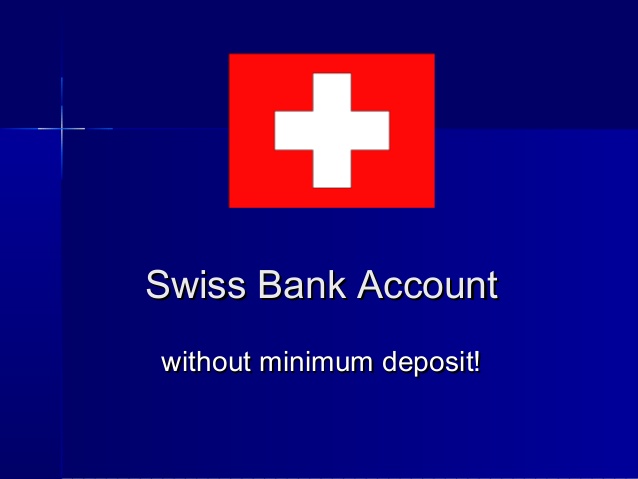 Switzerland as a banking destination
Switzerland as a banking destination
Banking in Switzerland is seen as something very emblematic to the country. Besides Swiss Alps, watches, and chocolates, the only thing that comes to mind when someone talks Switzerland is Swiss banking.
You might be wondering what makes a hilly country in Europe such a hot banking destination. The answer lies in Switzerland’s long history of banking secrecy and client confidentiality. Switzerland is often considered as the “grandfather of banking secrecy”.
Banking secrecy laws in Switzerland
 Switzerland has banking laws which prohibit banks in the country from disclosing the identities of the account holders to foreign governmental institutions or anyone else. However, things have changed lately as the banking secrecy has been weakened through sustained pressure by various countries demanding the disclosure of information of account holders who may be suspects for tax evasion.
Switzerland has banking laws which prohibit banks in the country from disclosing the identities of the account holders to foreign governmental institutions or anyone else. However, things have changed lately as the banking secrecy has been weakened through sustained pressure by various countries demanding the disclosure of information of account holders who may be suspects for tax evasion.
At the same time, there are initiatives to incorporate the banking secrecy laws into the constitution of Switzerland to protect the laws from weakening.
The laws in Switzerland make it an offense for a banker to disclose the account holder’s information. The laws also shield the bankers from any foreign-led lawsuits, criminal charges, or extradition requests for not disclosing client information.
Situations where secrecy does not apply
The only time the client confidentiality lapses is when the account holder does something which is contrary to Swiss law. Movies often show shady characters wire transferring large sums of money into offshore Swiss accounts. Similarly, wealthy individuals in the past have tried to misuse the baking secrecy laws of Swiss banks to shield assets from enforcers, taxmen, and creditors. All such activities would be considered illegal by the Swiss authorities and account holder information may get disclosed in such cases.
Information sharing of account holders can also happen if there are criminal allegations, divorce proceedings, or tax investigations being conducted against an account holder. The Swiss Banking Association is quite clear about the fact that Swiss accounts cannot be used as safe havens for ill-gotten wealth. Swiss banks have an incentive to co-operate with foreign governments on matters like terrorism and fraud.
Judgments from US courts in matters related to civil and criminal offenses can also compel Swiss authorities to disclose account information. Swiss accounts do not offer creditor protection in that sense to an account holder. Swiss banks tend to co-operate with US authorities on such legal proceedings.
The relatively recent Foreign Account Tax Compliance Act, or FATCA, has pressured Swiss banks to share information about US account holders with the Internal Revenue Service (IRS). FATCA also requires US citizens to declare all their foreign accounts and holdings. If they don’t do it, their foreign banks will end up disclosing the information.
FATCA was envisioned with a goal of eliminating tax evasion. It requires banks all over the world to report account information of all its US citizen-customers to the IRS. There are stiff sanctions for non-compliance. In fact, FATCA is something that has made US citizens less attractive as customers to banks all over the world. Some Swiss banks may not entertain US citizens as a result of FATCA.
Regardless of the situation around banking secrecy, those who are interested in knowing what Swiss bank accounts are and how to open one will find plenty of useful information below.
What are Swiss Bank Accounts?
 A Swiss bank account is an account that any person can open at a bank in Switzerland (including cantonal banks). The account is identified by a number rather than the client’s name in order to keep the identity of the account holder anonymous.
A Swiss bank account is an account that any person can open at a bank in Switzerland (including cantonal banks). The account is identified by a number rather than the client’s name in order to keep the identity of the account holder anonymous.
Swiss banks will also give their account holders debit cards, credit cards, and checks. However, since most people do not use Swiss accounts for everyday use, they do not really use debit cards and checks very often. In fact, by using the cards and the checks, you would be letting the world know that you hold a Swiss bank account.
Anyone can open a Swiss bank account irrespective of nationality. Swiss citizens or US citizens can open Swiss bank accounts. The most obvious and well-publicized benefit of opening a Swiss bank account used to be secrecy.
However, there are other benefits to opening a Swiss account. Firstly, Switzerland is a very stable country, both politically and economically. It has not had a war with any other country for many years.
Additionally, Swiss law mandates banks to have high capital requirements. There is strong protection for depositors of funds as well. Hence, any risk of a financial crisis of political conflict is very low.
Switzerland is a global powerhouse and a well-known destination for high-quality wealth management. Value-added services like gold storage vaults also make Swiss accounts attractive.
Some banks operate undisclosed or secretive vaults, underground bunkers, and storage facilities for diamonds, precious stones, and other valuable physical assets. In fact, it is believed that the Swiss department sold ten military bunkers out of which six were picked up by Swiss banks.
There are minimum deposit requirements associated with a Swiss bank account. These range from a few thousand dollars to a few million, depending on the type of account being opened.
How to open a Swiss Bank Account?
 The process for opening a Swiss bank account used to be quite simple. It was similar to opening a regular bank account. However, with the recent rise in scrutiny and past cases of money laundering, the process has become a relatively long one. There is plenty of paperwork involved, most of it on the bank’s end. There is plenty of due diligence and other procedural work involved in opening a Swiss account.
The process for opening a Swiss bank account used to be quite simple. It was similar to opening a regular bank account. However, with the recent rise in scrutiny and past cases of money laundering, the process has become a relatively long one. There is plenty of paperwork involved, most of it on the bank’s end. There is plenty of due diligence and other procedural work involved in opening a Swiss account.
The first thing you need to do to open a Swiss bank account is research into banks who work with US citizens (or your home country). Shortlist banks that you believe are the best options. Then, you will have to reach out to them and start a conversation. Gradually, you will make an application to open a bank account. The bank may request documentation from you. You will actually have to visit Switzerland and meet the bankers in person at some point. Swiss bankers want to know their clients and where their money comes from.
Swiss banks perform thorough due diligence on any potential client wanting to open an account with them. Valid identification like passport and government ID needs to be provided first. Then, detailed information on the sources of your funds needs to be submitted.
The Swiss bankers will look to understand where your money came from and how you earned that income. If you have large transactions in your source of funds, then the bank may ask you for agreement copies from any asset sales and bank statements verifying such transactions. Documents that verify your source of funds will be examined before you open the account.
Please note that you cannot simply fly to Switzerland and walk into a bank branch to open your Swiss account. The above steps will have to be done, a conversation will have to be initiated, and then things will start falling into place.
Work with a professional
 If you are serious about opening a Swiss bank account, then it may be best to speak with a tax attorney to understand the tax implications of owning and operating a Swiss account. You do not want to get into trouble with the IRS later on.
If you are serious about opening a Swiss bank account, then it may be best to speak with a tax attorney to understand the tax implications of owning and operating a Swiss account. You do not want to get into trouble with the IRS later on.
Additionally, since significant paperwork is involved, and since there may be a chance of you getting turned down by a Swiss bank if they do not find your profile to be trustworthy, it is best that you work with an experienced professional.
The process of corresponding with a Swiss bank needs to be smooth and efficient in order to maximize your chances for account approval. Working with someone who has opened Swiss accounts before and who has relationships with banks in Switzerland will go a long way in helping you open a Swiss bank account.
